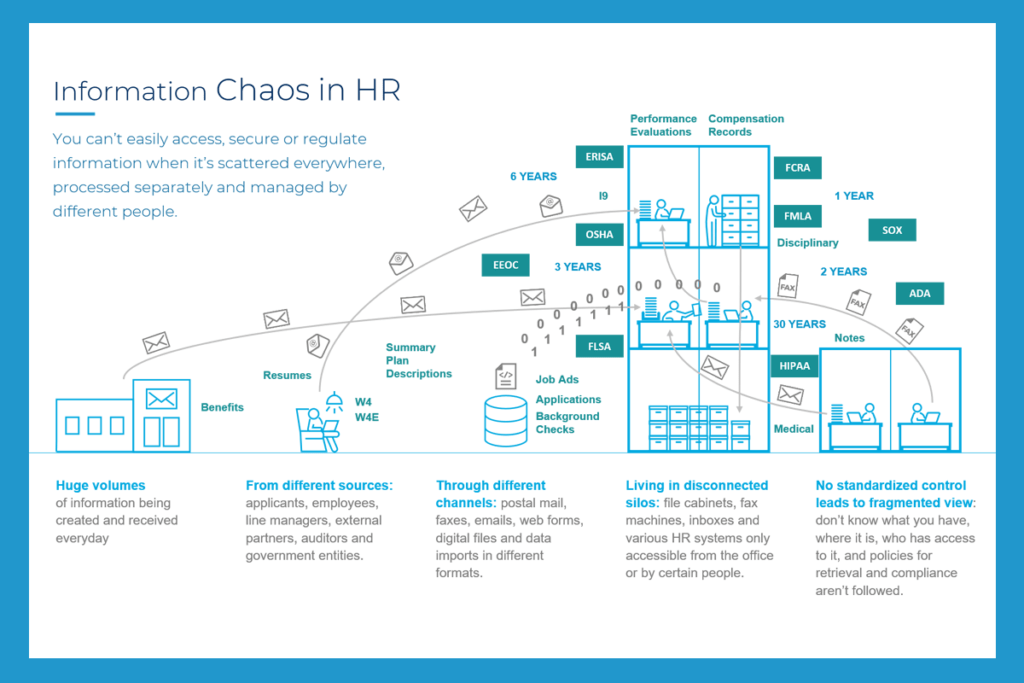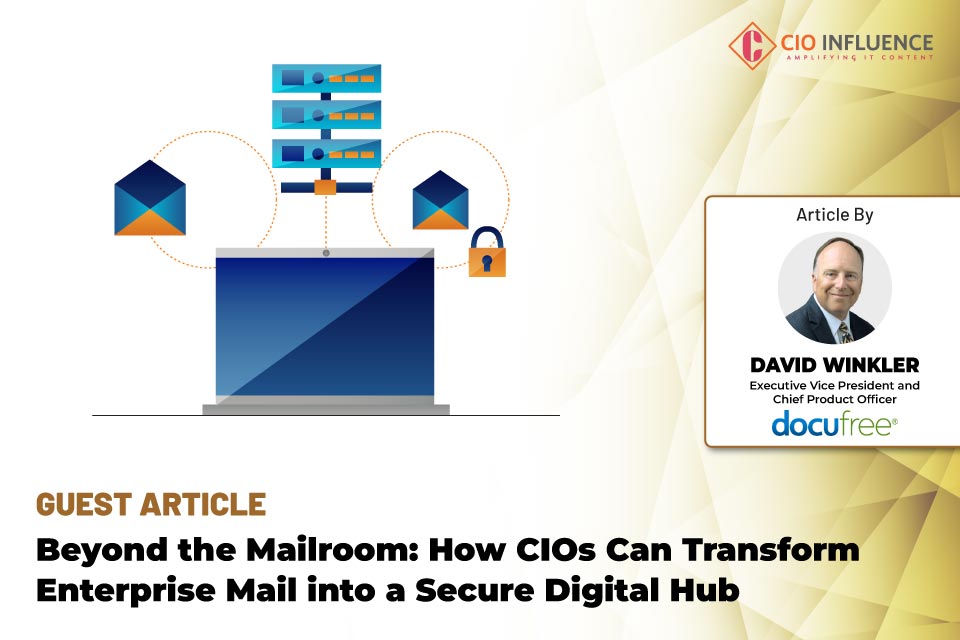COVID-19 caused much of the labor force to suddenly switch to remote work, transforming the traditional workplace as we know it. One study found that only 15 percent of those employed pre–COVID-19 worked from home; the number of these workers ballooned after the pandemic by an additional 35 percent, indicating that fully half of the employed labor force now works from home.
This type of unexpected pivot put immense pressure on HR departments to continue to operate under “normal” business operations—at least as much as possible.
Our “new world of work” now requires company HR information to be as mobile as its workforce.
A Hybrid Operational Reality
Companies around the country are starting to contemplate how to reopen offices as vaccines become more readily available. Needless to say, everyone—both business owners and many employees—are ready to return to some kind of normal work life. While the pandemic has changed the business world, corporate executives and workers alike acknowledge that there are advantages to remote work, making the hybrid workplace more of a sustainable reality.
A hybrid workplace is a type of business model that splits the shifts of workers between remote and in-office workplaces. For example, your HR and finance departments might work two days a week at home while your marketing and accounting teams would have those same two days in the office. These schedules could then be switched on a weekly or monthly basis so everyone is both in the office and working from home.
Through the application of this model, employers receive the best of both worlds: the flexibility of remote work combined with some form of face-to-face interaction and supervision over workers. While a hybrid workplace has its challenges, many experts believe that this is the future of business.
Information Chaos Reined in HR Pre-Pandemic
Well before COVID-19 started impacting the business world, HR professionals were already struggling with gathering, managing and extracting value from the sea of documents moving in and out of their departments. HR professionals were constantly challenged to secure and regulate information while making it easily accessible when it was scattered everywhere, processed separately, and managed by different people.
The main reasons HR departments struggle with information management:
- Huge volumes of information is being created and received every day;
- Information is coming from different sources, such as applicants, employees, managers, external partners, auditors and government entities;
- Information flows through multiple channels, including postal mail, emails, faxes, web forms, digital files and data imports in different formats;
- Information is living in disconnected silos, from file cabinets and fax machines to inboxes and various HR systems only accessible from the office or by certain people; and
- The lack of standardized controls have led to a fragmented view where HR departments don’t know what information they have, where it is, who has access to it and whether or not the policies for retrieval and compliance are being followed.

Needless to say, the pandemic forcing the majority of companies to move to a work-from-home model compounded these challenges tenfold.
Our “new world of work” now requires company HR information to be as mobile as its workforce.
Three Essential Technologies to Support Your Mobile Workforce
Pre-pandemic, we saw a business landscape where HR departments were slowly moving from a heavy, document-centric workstyle to one that was more data centric. However, COVID-19 fast-tracked that movement.
In order for companies to run their HR processes efficiently and effectively—day in and day out—within a hybrid workplace model, human resources professionals need the right technology tools to support those processes with capabilities to:
- Capture and import incoming documents from all sources (i.e., paper, electronic, etc.);
- Automatically process those documents, identifying, categorizing and digitally housing by type; and
- Deliver that information to the right people, repositories and HR systems—and making it accessible 24/7.
These three technologies are essential for HR departments that want to successfully operate within a hybrid work environment:
Digital Mailrooms: Sound familiar? Our company has people working from home several days a week, only coming into the office part time. However, our physical mail is delivered daily to our business address, and it’s impossible to have relevant documents redirected to our HR staff’s home offices. You are among the ranks of companies trapped in a document-to-data transition. The underlying problem. An exorbitant number of HR documents still in paper form. Companies—large and small—have business-essential mailstreams coming through the U.S. Postal Service in physical form that have to be captured; data extrapolated; and then married with electronic counterparts. This process can be a logistical nightmare for HR staff. A digital mailroom means your HR staff never has to physically open mail or manually process inbound documents again.
The most sophisticated digital mailrooms capture incoming documents and data from every source, integrating them with HR systems and distributing them across your organization to provide faster access to the information your workforce needs, when and where they need it.
Electronic Signatures: Eliminate the need for in-person signatures and the delays, risks and hours of manual work they create. Instead, use an e-signature service to automate any signing and approval process to bring the experience completely online. Turn manual, paper-based, in-person signings that used to take days or weeks into a completely digital process that’s wrapped up in minutes online. Innovative eSign tools make it easy to get HR documents completed, signed and approved faster from anywhere, on any device, according to your rules. Onboard new hires, manage changes to benefits, and execute any other employment contractual process with speed, simplicity and precision. Always know where a document stands without the hassle of constant follow-ups. And deliver a superior signing experience that’s effortless, secure and legally compliant.
Integrated Content Services for ADP: ADP is the largest supplier of payroll, time and attendance as well as HR outsourcing services in the world, providing services to 860,000 companies in 140 countries. If you rely on ADP solutions to run your HR processes, then there are comprehensive content management services that automatically capture documents and turn them into meaningful, organized and consolidated information that’s consistently managed, controlled and readily available to the ADP applications that need it. Integration with ADP® Recruiting Management can provide your staff with effortless access and administration of new-hire documents.
Hybrid Workplaces May Be Here to Stay
The days of physically “reporting to work” are not likely to resume for many people once the pandemic is over. Knowledge workers have become accustomed to working remotely, and splitting time between the office and home is expected to become the new normal.
New PWC research shows that the work-from-home model has been overwhelmingly effective for both employees and employers. Eighty-three percent of employers consider the shift to remote work successful for their companies compared to 73 percent in a June 2020 survey. With this type of success, it could be challenging for many companies to return to prepandemic levels of in-office work. As a result, many organizations are beginning to accept the reality that the hybrid workplace may be here to stay. Through careful planning, implementation and HR-focused technologies, hybrid workplaces will certainly find a foothold in companies of all sizes.
Is your HR department ready? Contact us for more details on the technology tools your HR department needs to better navigate our hybrid work reality.




